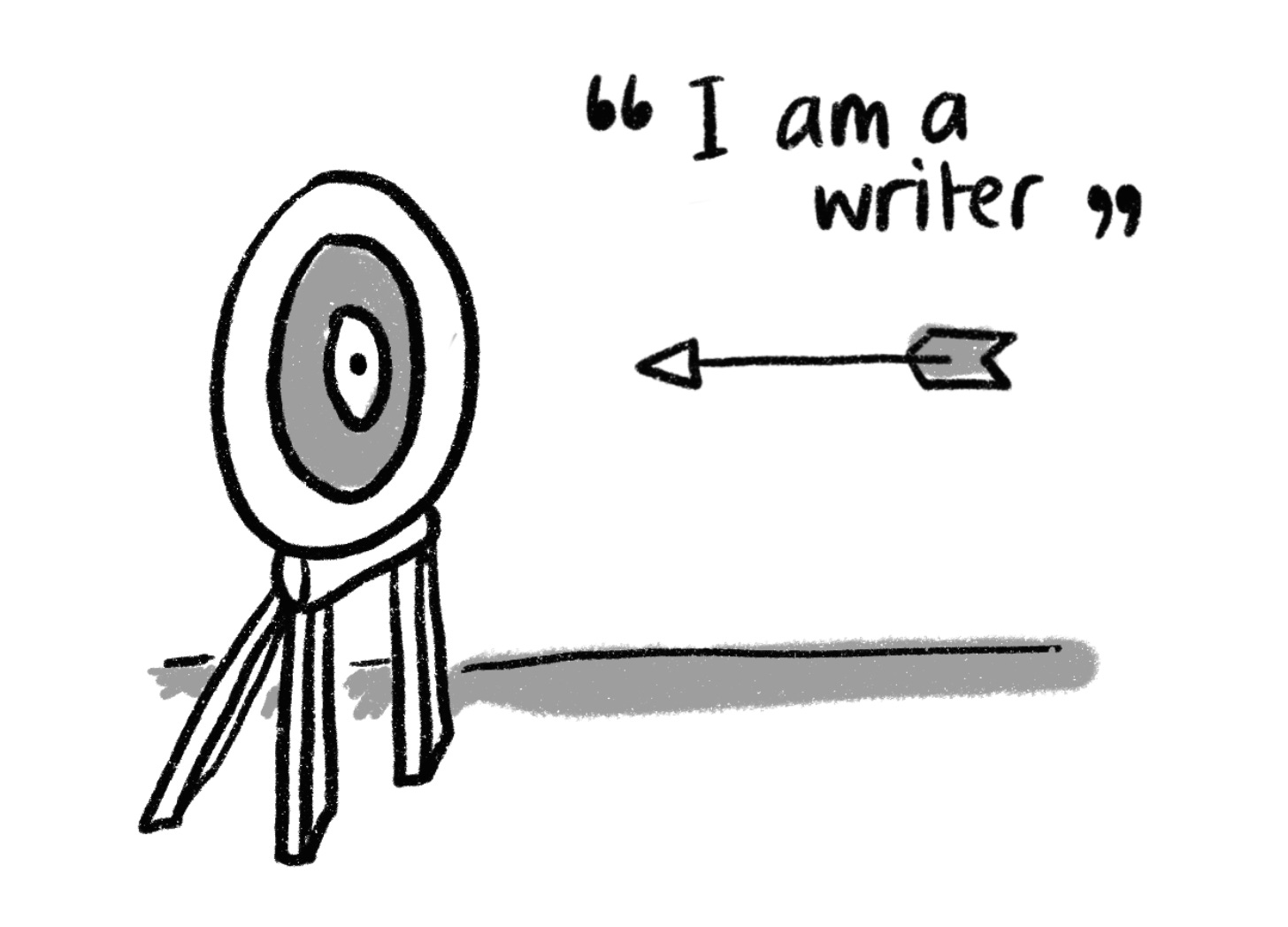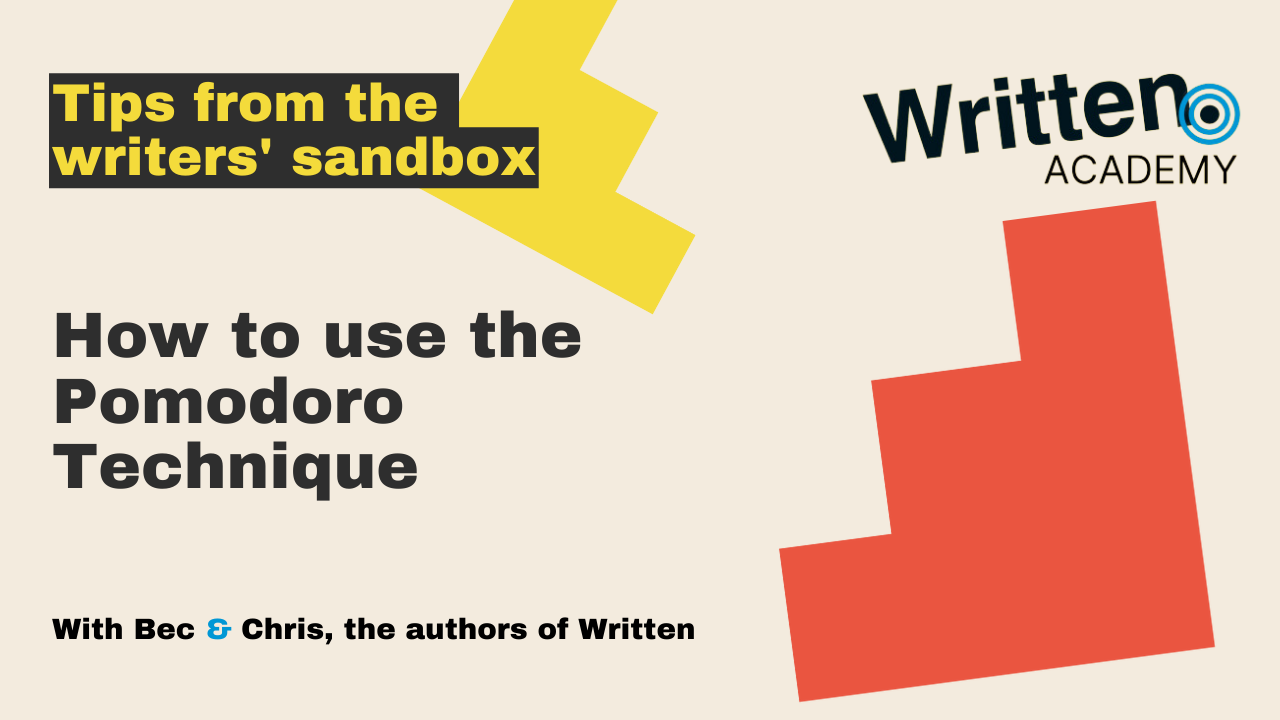Writing goals - love them or loathe them?
The struggle with setting goals, choosing between big or small, aiming for targets, enjoying the process and embracing Speedos. Also - do you set rewards for goals? And more writing-related links.
I’m not a really a goals kind of person. Unlike Bec, I don’t relish the idea of setting myself a target. So, I was in a strange situation last week when I was asked to consider my goals in some depth. Let me explain.
The problem with goals
Having just had a birthday, I decided to up my fitness and join a mid-life crisis inspired programme promising ‘results in 12 weeks’. As part of this I was asked to consider what my goal was for taking part and to be honest, I struggled.
Having a goal sounds simple doesn’t it? But the examples I was given like ‘I want to be able to go on a summer cycling holiday with my family and not feel out of breath’ or ‘I want to bench press 100 kilos’ or ‘I want to look hench in Speedos’ didn’t really resonate. Quite the opposite (though perhaps I just haven’t found the right Speedos).
What was I going to tell the personal trainer when the inevitable goal setting question arose?
Getting personal
You might know that every month we’re theming this newsletter around a chapter of our book Written: How to Keep Writing and Build a Habit that Lasts. May was about ‘time’ and this month we’re up to chapter four which means we’re onto goal setting - a far more complicated topic than it seems.
The reason why goal setting is so complicated is because we’re all motivated in different ways and by different things. Some people love having goals of the big hairy and audacious (BHAG) variety as a way to keep them pumped when times get tough. Other people find goals like these off-putting and overwhelming - they prefer sidling up to their goals in small steps. If you’re like me, you might not need much of a milestone to aim for at all.
Goals come in many different shapes and sizes. Not having a BHAG doesn’t mean you’re a directionless waster, rather that you need to find a type of goal that works for you. Productivity, as you’re probably sick of us saying, is personal.
Process not endpoint
After a lot of head scratching, I realised that what motivates me isn’t having an endpoint goal but rather having a process goal. When it comes to improving my fitness, ‘run 10k in 40 minutes’ motivates me less than working at the edge of my ability within each session and learning how to push myself without getting injured.
Whether you’re talking running or writing, big goals can be a great way to help you meet a target but other types of goals can help you sustain your practice and develop a habit that supports you long term.
We’ll dig into goals in further depth over the next four weeks but in the meantime, wish me luck! 🏃🏼 💪 🩲
Take care, Chris
Do you set rewards for achieving goals?
A coaching client of mine (Bec) sent his book off to the editor on Monday. It’s a huge milestone and has taken all the blood/sweat/tears that goes into writing (and rewriting and rewriting). When I asked him what he was doing to celebrate he said he’d booked time off to go to the cricket - India v Australia at the Oval in London.
For him, that was the perfect reward to push through and get to the end.
As Chris says, I love a goal and I love rewards, incentives, bribes and celebrations - they help me attach good things to the writing process. When I look back on past writing I remember all the nice things I did along the way.
Do you set rewards for your goals?
We’d love to hear in the comments below if rewards leave you cold or make it all worthwhile. Tell us what you did to celebrate.
Is writing a hobby or a career?
I can’t stop thinking about this article. I’m someone whose writing doesn’t earn my living, but is central to who I am. Rainesford Stauffer explores whether writing is a hobby or a career. She writes:
“I wrote the book on the side. But it felt like the center.
If writing was happening in what some might call margins of my life, did that inherently make it a hobby—or was it actually what knit my life together?
By this point, I know many writers who juggle writing alongside other jobs, other responsibilities—other dreams, even, which is perhaps why the “hobby versus job” binary felt stiff to me. Writing shouldn’t be so unstable that one needs another job to support it. But having another job doesn’t diminish the work of writing, either.”
Read Is My Writing a Hobby Or a Career? in Esquire. Thank you to Nicole Donut for sharing the article in her brilliant newsletter.
Want some two minute tips?
We’re taking some of the exercises from the writers’ sandbox section of the book and turning them into two minute YouTube tips. A little experiment to see if we can become YouTube stars - okay don’t laugh. The first one is on The Pomodoro Technique - every writer’s friend. Let us know what you think.
1000 words of summer
One of the many writing challenges Bec had signed up to and loved over the years is Jami Attenberg’s 1000wordsofsummer. This annual writeathon kicks off in a couple of weeks. Check out her newsletter - and read her brilliant answer to the why write question.










Thanks so much for this. I’m struggling with writing goals at the moment and it’s good to know I’m not the only one! Lucy x